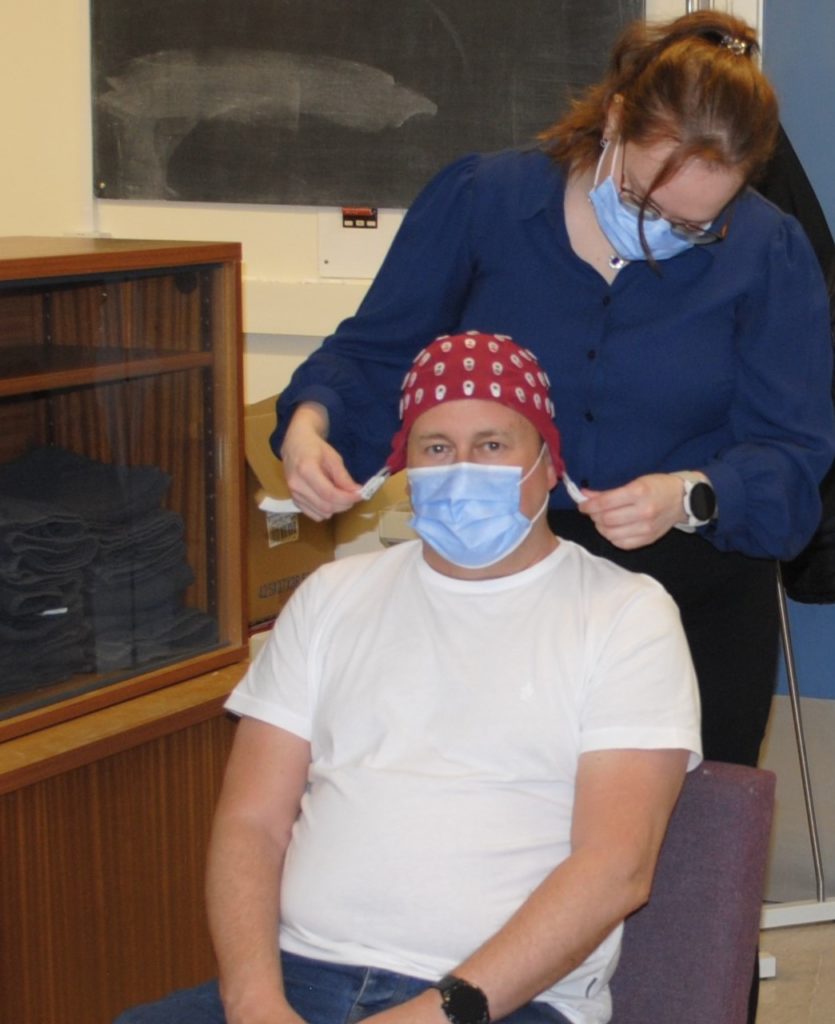An objective test for tinnitus, which will help researchers develop effective treatments, has moved one step closer – thanks to a £75,000 grant from Northumberland Freemasons.
The grant is funding an RNID studentship to support young researchers develop a career in auditory neuroscience. The studentship has been awarded to Kate Yukhnovich, who is based at the University of Newcastle.

One in 7 adults experience tinnitus all the time or regularly. Whilst tinnitus is rarely a sign of a serious condition, for some people it can have a severe effect on their daily life, causing stress, anxiety, and sleep problems.
The top research priority highlighted by people with tinnitus is always to find a treatment to stop it. Unfortunately, we are still a long way from achieving a cure for tinnitus.
A major limiting factor is that we do not have a reliable way to ‘objectively’ measure tinnitus – a way that isn’t affected by a personal judgement, either by the person with tinnitus or the person measuring it. This lack of an objective test makes it very difficult to study tinnitus effectively, or to measure any changes in people’s tinnitus following treatment. This means that we cannot reliably monitor the effectiveness of tinnitus treatments.
Kate is a PhD student in Dr Will Sedley’s lab at Newcastle University. Initial work by Dr Sedley has shown that measuring changes in brain activity when someone is listening to a sequence of sounds can tell the difference between people with tinnitus and people who do not have it, which shows promise as an objective way to measure tinnitus .
Kate’s study is using a brain imaging method called Electroencephalography (EEG) to compare the changes in brain activity of people with and without tinnitus while they listen to a series of sounds. Through the findings, Kate will aim to develop a test to tell whether a person has tinnitus or not.
The grant from the Masonic Charitable Foundation is funded by Freemasons, their families and friends, from across England and Wales.
Kate Yukhnovich said:
It’s astonishing that more work isn’t done in this area, considering more than seven million adults in the UK are living with tinnitus. I’m really keen to develop a clearer understanding of the condition and help people who are affected.”
Ralph Holme, Director of Research and Insight at RNID, said:
We’re very grateful to Northumberland Freemasons for this generous grant. Hearing loss and tinnitus research is significantly underfunded, which is why grants like this are so important to help us achieve breakthroughs.
Less than one per cent of the total public and charity investment in medical research was spent on hearing research in 2018 – just 83p spent per person affected. We look forward to seeing the results of Kate’s research.”
Dr Greg Smith from Northumberland Freemasons, said:
I’m very pleased we’ve been able to help RNID with this hugely important research. Some people describe tinnitus as a constant hiss or screech, which can cause great distress over a long period. It’s desperately important that we continue to research this condition and find a solution. This partnership offers us more hope that tinnitus might one day be silenced.”